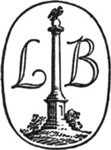E-text prepared by A. E. Warren and revised by
Jeannie Howse, Frank van Drogen, Paul Hollander,
and the Project Gutenberg Online Distributed Proofreading Team
()
HTML version prepared by
Jeannie Howse, Frank van Drogen, Paul Hollander,
and the Project Gutenberg Online Distributed Proofreading Team
Transcriber's Note:
Inconsistent hyphenation, and spelling in the original document have been preserved.
Obvious typographical errors have been corrected.For a complete list, please see the end of this document.
Click on the images to see a larger version.
THE INFLUENCE
OF SEA POWER
UPON HISTORY
1660-1783
By
A. T. MAHAN, D.C.L., LL.D.
Author of "The Influence of Sea Power upon the French
Revolution and Empire, 1793-1812," etc.

TWELFTH EDITION
BOSTON
LITTLE, BROWN AND COMPANY
Copyright, 1890,
By Captain A. T. Mahan.
Copyright, 1918,
By Ellen Lyle Mahan.
Printed in the United States of America
PREFACE.
The definite object proposed in this work is an examination of thegeneral history of Europe and America with particular reference to theeffect of sea power upon the course of that history. Historiansgenerally have been unfamiliar with the conditions of the sea, havingas to it neither special interest nor special knowledge; and theprofound determining influence of maritime strength upon great issueshas consequently been overlooked. This is even more true of particularoccasions than of the general tendency of sea power. It is easy to sayin a general way, that the use and control of the sea is and has beena great factor in the history of the world; it is more troublesome toseek out and show its exact bearing at a particular juncture. Yet,unless this be done, the acknowledgment of general importance remainsvague and unsubstantial; not resting, as it should, upon a collectionof special instances in which the precise effect has been made clear,by an analysis of the conditions at the given moments.
A curious exemplification of this tendency to slight the bearing ofmaritime power upon events may be [iv]drawn from two writers of thatEnglish nation which more than any other has owed its greatness to thesea. "Twice," says Arnold in his History of Rome, "Has there beenwitnessed the struggle of the highest individual genius against theresources and institutions of a great nation, and in both cases thenation was victorious. For seventeen years Hannibal strove againstRome, for sixteen years Napoleon strove against England; the effortsof the first ended in Zama, those of the second in Waterloo." SirEdward Creasy, quoting this, adds: "One point, however, of thesimilitude between the two wars has scarcely been adequately dwelt on;that is, the remarkable parallel between the Roman general who finallydefeated the great Carthaginian, and the English general who gave the